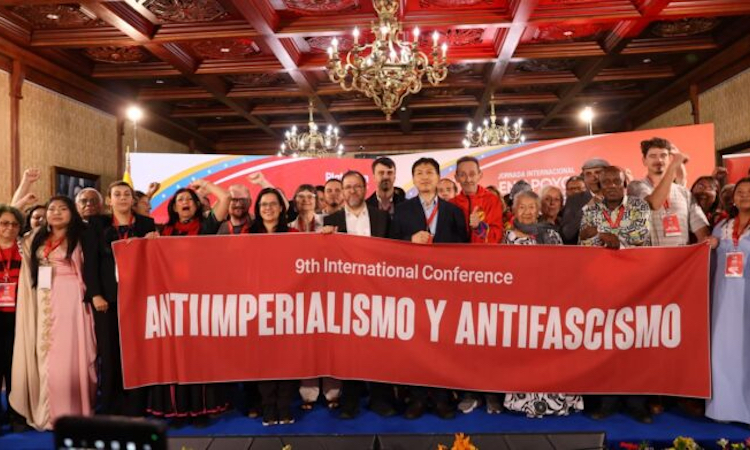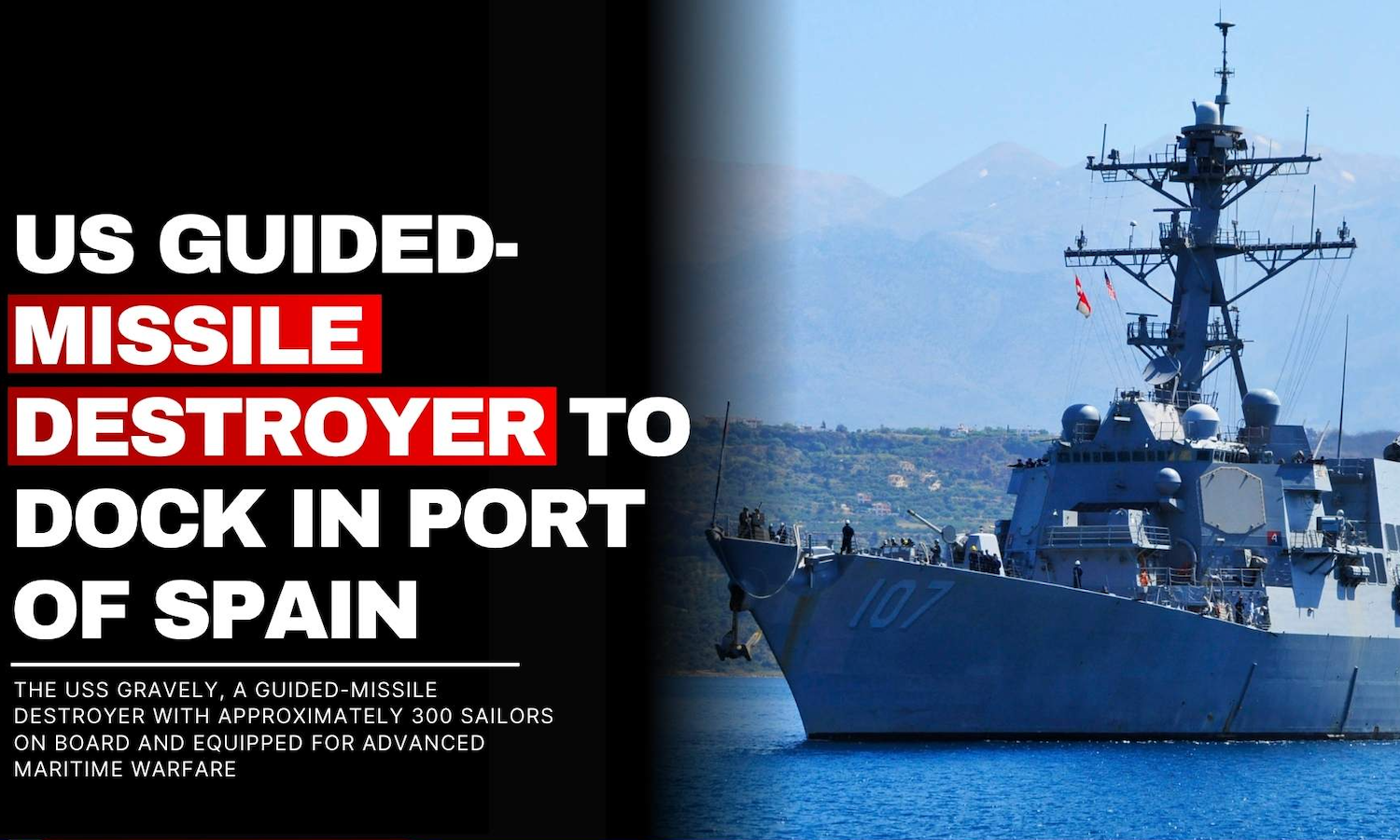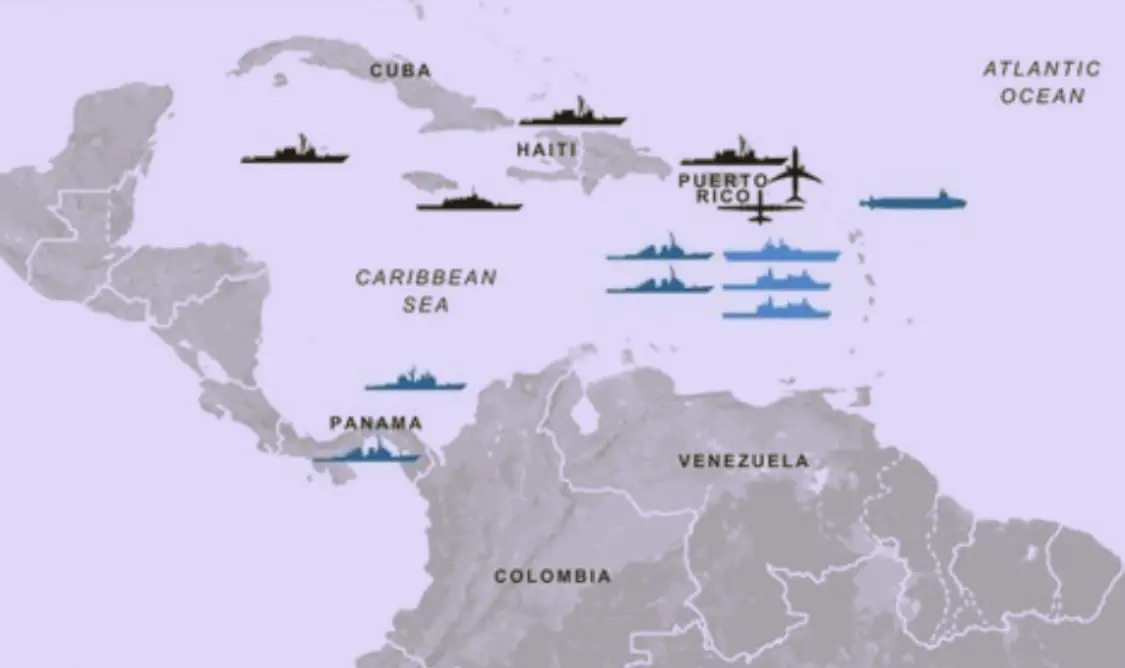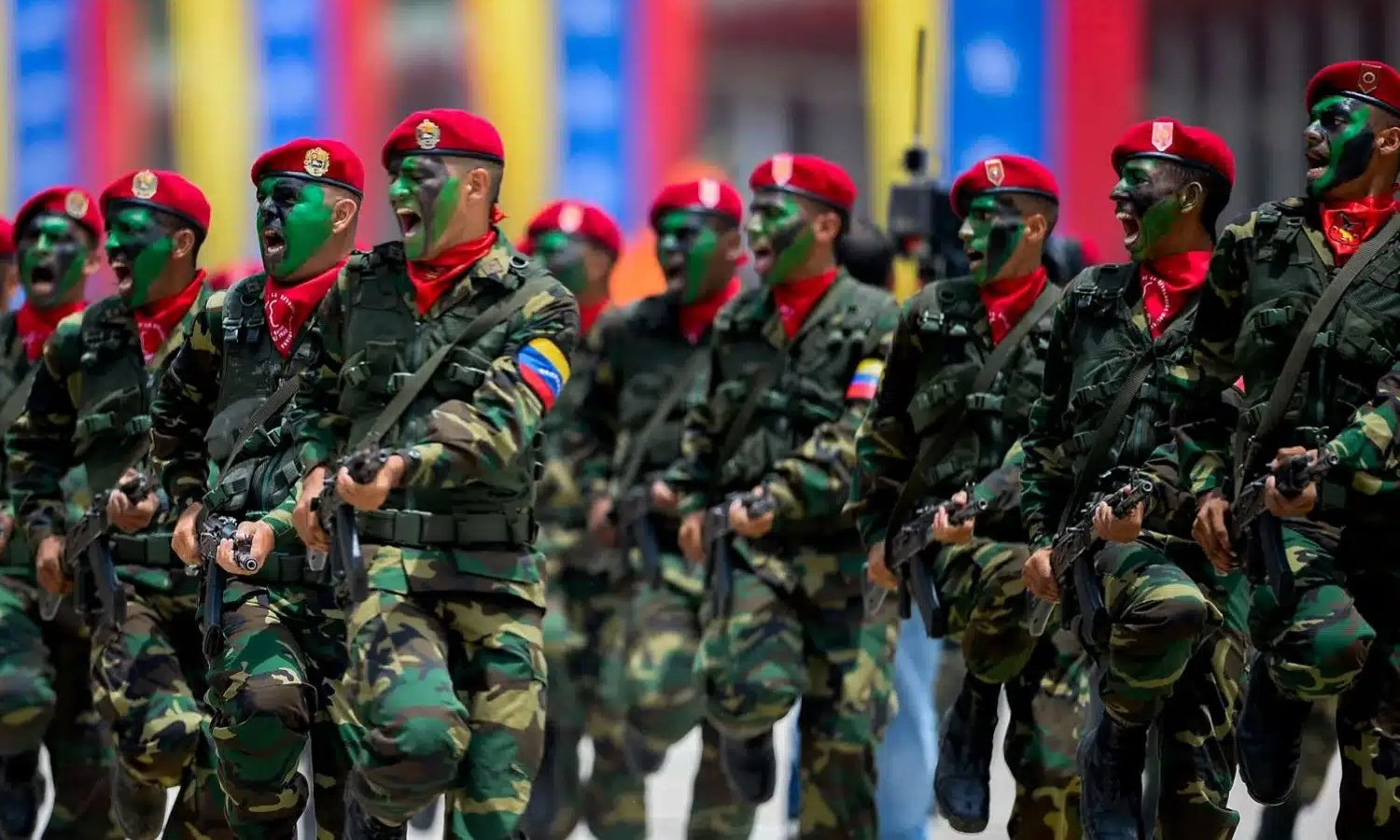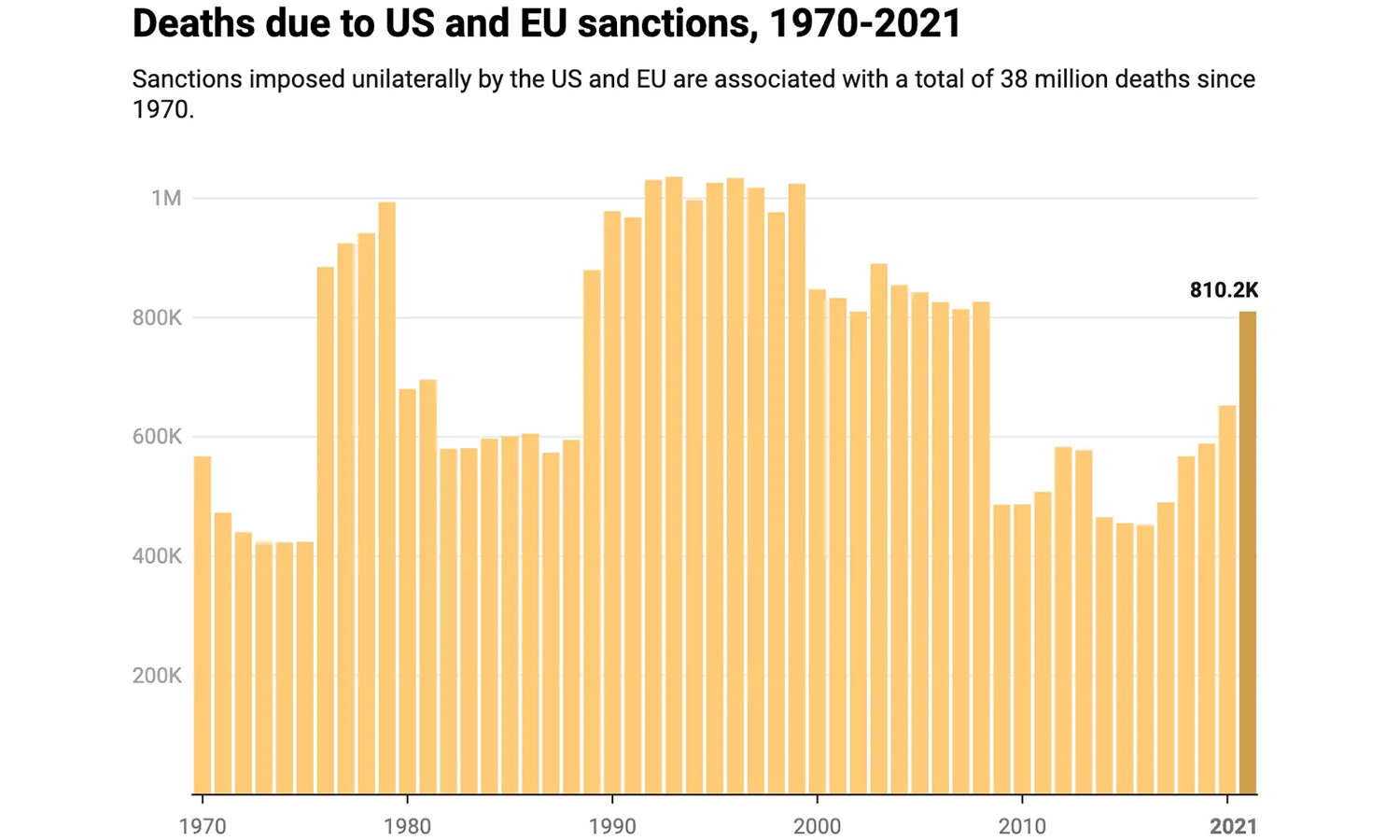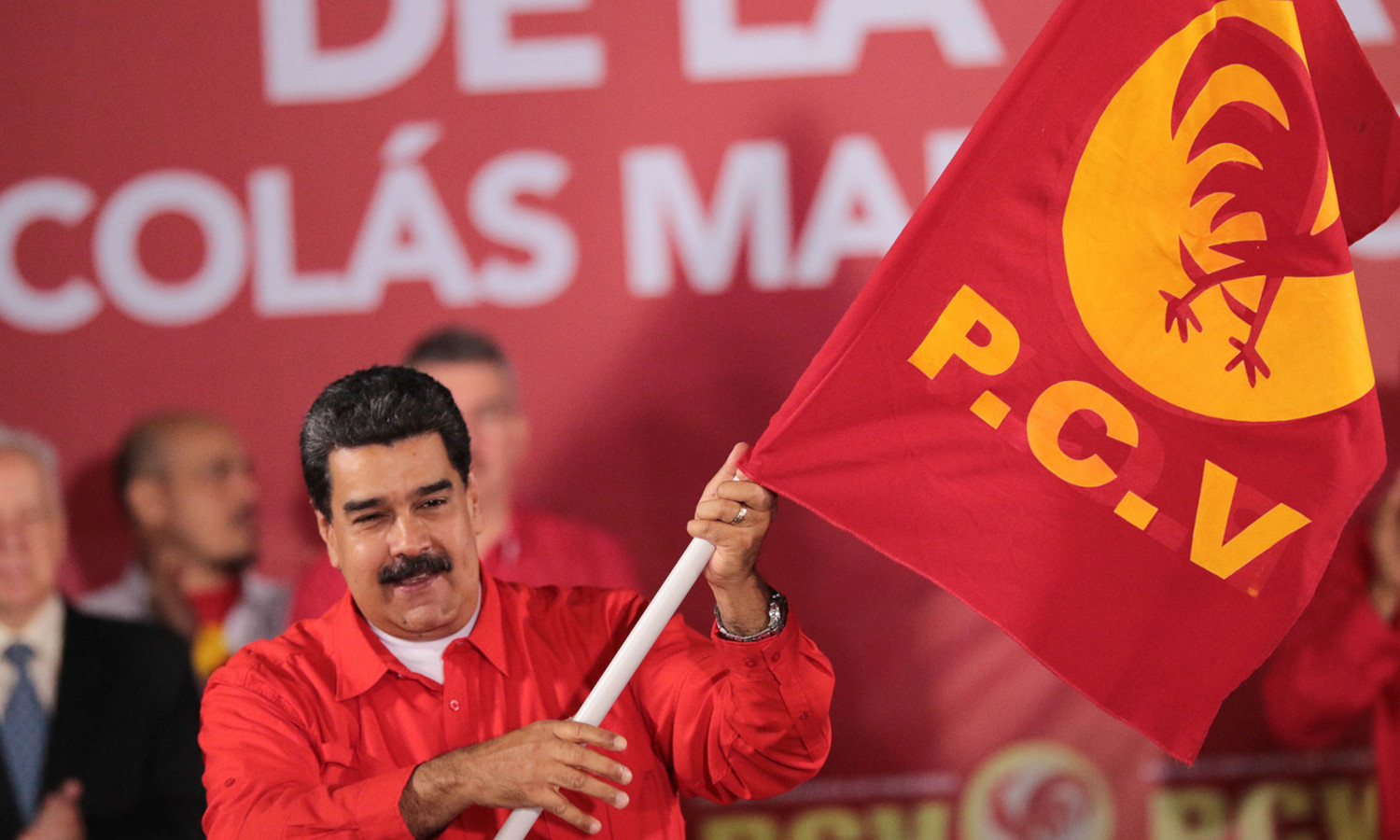This report by human rights organisation Sures, detailing the brutal sanctions regime being imposed against the Venezuelan people by the USA and its allies, is reproduced in sightly edited form with thanks.
Download the original booklet as a pdf here.
*****
What are unilateral coercive measures?
The term ‘unilateral coercive measures’ (UCM) generally refers to economic, commercial or other measures taken by a state, outside the auspices of the United Nations security council, to force a change in policy of another state.
They are acts of interference that violate the sovereignty and self-determination of a state. It is a mechanism to pressure decision-making against a country’s principles and interests.
Is there a difference between sanctions and unilateral coercive measures?
From a legal point of view, a sanction is the consequence or effect of an action that infringes a law or legal norm. The sanction seeks to achieve: 1) forced compliance with the respective legal duty; 2) compensation for damages, established in general, when the former is not possible, and 3) a punishment, when the act is already serious; punishment that materialises through a penalty. The defining nature of a legal sanction is enforceability. [1]
The international law established in chapter VII of the United Nations charter is the legal basis for the security council to adopt sanctioning measures that do not involve the use of armed force, with the aim of maintaining or restoring international peace and security. In this regard, since 1966, the security council has established 30 sanctioned regimes. [2]
Currently, there are 14 ongoing sanctions regimes, which focus on supporting the political settlement of conflicts, nuclear non-proliferation, and counterterrorism. Each one of them establishes a committee, chaired by a non-permanent member of the security council. [3]
Unilateral coercive measures refers to the unilateral imposition of economic, commercial or other measures adopted by a state to destabilise and subsequently force a change of policy or government in another state. These do not have the support or sponsorship of the international community. Thus, their use has been widely rejected by multilateral and regional organisations, particularly due to the direct negative impact it has on the full enjoyment of human rights in the affected state.
In this regard, the Vienna Declaration and Programme of Action, adopted by the World Conference on Human Rights in 1993, urged states to:
“Refrain from any unilateral measure not in accordance with international law and the charter of the United Nations that creates obstacles to trade relations among states and impedes the full realisation of the human rights set forth in the Universal Declaration of Human Rights and in international human rights instruments, in particular the rights of everyone to a standard of living adequate for their health and wellbeing, including food and medical care, housing and the necessary social services.”
In addition, human rights treaty bodies and a series of UN studies [4] have outlined the legal limitations regarding the imposition of unilateral coercive measures with respect to the essential rights for dignity and survival. A number of statements and resolutions [5] have drawn attention to the need to address the negative impact of these measures on human rights.
How long has Venezuela been subject to economic blockade?
In December 2014, the USA Congress approved Act 113-278 (the ‘Venezuela Defence of Human Rights and Civil Society Act of 2014’) and executive order 13692 (aka the ‘Obama decree’) issued on 9 March 2015, when Venezuela was declared an “Unusual and extraordinary threat to US national security”.
Punitive measures were then formally issued by the USA against individuals, properties and/or related assets of the Venezuelan government. These actions were carried out by the Office of Foreign Assets Control (OFAC).
From that moment on, the USA has ‘led’ Venezuela’s economic blockade, and since 2015 has issued seven additional executive orders (13692, 13808, 13827, 13835, 13850, 13857, and 13884), with their respective extensions and restrictions targeting natural and legal persons. These legal instruments set down US foreign policy’s line of action against Venezuela, while establishing a roadmap for other states under its sphere of influence to adopt similar coercive measures.
In 2019, a report prepared by the UN special rapporteur on the negative impact of unilateral coercive measures on the enjoyment of human rights noted that the USA for more than a decade has been applying an increasing number of economic sanctions to Venezuela and has included it in a ‘blacklist’ for various reasons.
For instance, since 2005, the USA has every year issued a directive stating that Venezuela has failed to make sufficient efforts to fulfil its obligations under international agreements to combat illegal drug trafficking and human trafficking.
Why is Venezuela targeted?
Since the election of Hugo Chávez as president in 1998, the USA has defined a ‘regime-change’ policy towards Venezuela, considering that the political and socioeconomic model promoted by the government – of sovereignty, independence and social justice – constituted a threat to its own domination and control scheme designed for the region.
This strategy led the government of George W Bush to finance and support the coup d’etat of April 2002 against President Chávez. [6]
Trump’s administration has exacerbated these measures, with the open intention of overthrowing the government of President Nicolás Maduro.
This idea has been expressed repeatedly by himself and different spokespersons, proclaiming that the most expedited way to withdraw the UCM is by handing over the presidency to the deputy Juan Guaidó or to a government that the USA will approve as being ‘democratically elected’.
Which countries are sanctioning Venezuela?
Besides the measures imposed by the USA (62 times), the governments of Canada (2), the United Kingdom (2), Switzerland (1), Panama (1) and the European Union (4) have imposed measures against Venezuela, alongside similar acts of interference in the country’s internal affairs.
These include a prohibition on any transaction, acquisition or trade in military weapons or technological equipment intended for the surveillance of telecommunications and internet by the Bolivarian Republic of Venezuela. These states have replicated the list of over 110 people sanctioned by the USA, which includes senior executives and popularly elected officials, imposing bans and restrictions on their movement, commercial transactions and financial services.
What does the blockade consist of?
The United States of America is the country that has imposed the greatest volume of UCMs, imposing an economic, financial and commercial blockade against the Venezuelan state. It has imposed measures against Petróleos de Venezuela (PDVSA – the Venezuelan state-owned oil company), 43 of its vessels, two aeroplanes, and 109 private and public companies, including six state banks (including the Central Bank of Venezuela, holder of the Venezuelan international reserves and monetary authority).
US measures also include the confiscation of CITGO (the main subsidiary of PDVSA abroad) and all property of the Venezuelan government on US soil, prohibitions on the purchase of debt bonds, freight movements, financial transactions, purchase of supplies and diluents for gasoline, and more.
Moreover, the US Office of Foreign Assets Control has listed 123 individuals as “special designated nationals”, including the president, members of the executive boards of state-owned enterprises, and Venezuelan representatives in international financial institutions. These measures, besides banning the designated individuals from entering the USA or accesing their assets (if they had any), further complicate Venezuela’s access to financial transactions and markets.
The blockade also affects trade routes. Since the USA dominates the commercial routes and main shipping companies, sanctions have prevented the arrival of essential goods to Venezuela – not only those coming from the USA, but those being brought in from any other country within its sphere of influence.
What is OFAC?
The Office of Foreign Assets Control (OFAC) was established in 1950 under the pretext of regulating the activities of US companies and foreign governments in the USA. It is an agency within the US treasury department in charge of dictating unilateral coercive measures.
Since the objective of the measures is to prevent what could be considered an intromission in their economy, national security or political interests, they focus on prohibiting business, imposing fines and preventing people from accessing the USA and/or to any property within the USA’s jurisdiction.
The measures are in force through an executive order issued by the president. Congress has the power to renew or limit their action, but not to repeal them. OFAC has a significant influence on the direction and implementation of US government foreign policy initiatives, and is closely connected to the president’s office, as well as to the state department and the office of terrorism and financial intelligence.
At present, OFAC has UCM on: 1) Belarus, 2) Burundi 3) Cuba 4) Central African Republic, 5) Iran, 6) Iraq, 7) Lebanon, 8) Libya, 9) Nicaragua, 10) Somalia , 11) Sudan and Darfur, 12) South Sudan, 13) Syria, 14) Ukraine, 15) Yemen, 16) Zimbabwe, 17) Venezuela.
Impact of the blockade on Venezuela’s oil industry
In the first quarter of 2015, when the first effects of the UCMs against Venezuela began to be felt, the country’s oil transactions, calculated at the constant dollar rate of 1997, amounted to over ¢16bn, which was slightly higher than that of the fourth quarter of 2014.
A drop below ¢16bn was observed in the third quarter (to ¢15.842bn) and in the fourth quarter (to ¢15.306bn). In 2016, this steady erosion continued, arriving by the fourth quarter at a turnover of ¢13.440bn. In 2017, the year opened with a trade of $13.418n and closed at ¢10.586bn.
By the third quarter of 2018, the last reported period, Venezuela’s oil GDP barely reached ¢8.723bn. [7] By that time, the impact of executive order 13808 (pass on 24 August 2017) had been thoroughly demonstrated. Payments to PDVSA debt holders were impeded, and there an explicit prohibition was issued in executive order 13827 prohibiting the renegotiation or restructuring of Venezuelan state or PDVSA debt, or the repatriation of CITGO profits.
By January 2019, oil production in Venezuela was down to 1.3 million barrels per day, and in April the same year it was down again to less than 800,000, directly and brutally affecting the Venezuelan people. [8]
How does this blockade impact the international financial system?
In July 2017, after the issue of the first formal financial UCMs, Citibank, a US private financial company, decided abruptly, without prior notice, to close its accounts for the Central Bank of Venezuela and the Bank of Venezuela. This arbitrary action immediately created difficulties for the state in trying to pay for imports and to cover other financial commitments.
In November 2017, following US Congress Act 113-278 and executive order 13808, Citibank also refused to process Venezuelan state funds that had been sent to a private foreign company’s account in payment for 300,000 doses of insulin.
Also in November, the European Union received ¢1.65bn that the Venezuelan government had cancelled for the purchase of food and medicines. Even more seriously, during the same month the blockade was extended to cover not only imports, but also receipt of payment for services and products generated by the Venezuelan state. Venezuela was thus prevented from obtaining profits from economic services rendered to other states or foreign companies.
Another example of this was when Wells Fargo, a private US bank, withheld and cancelled a payment of ¢75m made by the Brazilian government to Venezuela for electrical services. A similar case occurred with Venezuela’s state-owned oil company CITGO, located on US soil, which has been prevented from transfering any earnings to Venezuela since 2017. Moreover, in 2019, control of the company was arbitrarily transferred to a group of people outside the national government.
Likewise, following executive order 13808, which explicitly prohibited transactions in Petro (a gold-backed cryptocurrency issued by the government of Venezuela), the cryptocurrency exchange Bitfinex, based in Hong Kong, announced that it would no longer trade Petro in order to avoid itself being sanctioned by the US government. According to US law, contractors and personnel “wherever they are” are prohibited from making transactions in Petro.
These few examples illustrate how the economic blockade is imposed against Venezuela.
How does the blockade affect human rights in Venezuela?
The economic, financial and commercial blockade imposed by the United States of America against Venezuela has a great impact on the country’s economy, on its social development and, above all, on the state’s ability to import basic necessities, including food, medicines and health supplies.
Venezuela imports most of the medicines it needs so as to guarantee the life and health of its inhabitants. To that end, 34 percent of medicines are imported from the USA, 7 percent from Spain and 5 percent from Italy. This means that 46 percent of the medicines Venezuela’s people need comes from countries that have applied unilateral coercive measures. [9]
In relation to food, 45 percent of imports (33 percent fro the USA and 12 percent from Canada) are from countries that maintain an open confrontation and have applied the maximum possible economic sanctions against Venezuela.
Likewise, the control that the USA exerts over global shipping companies and trade routes, along with the explicit restrictions on imports (industrial inputs and financial transactions, among others), greatly increases the difficulty of transporting goods to Venezuela, even when purchased from countries that are not themselves applying any sanctions.
For example, a unilateral coercive measure has been issued by the USA against any ships carrying food to Venezuela or exporting oil from Venezuela to the world. Undoubtedly, by crippling the country’s economy in this way and preventing the flow of essential goods and serviecs, the UCMs imposed by the US and its allies have a direct and extremely negative impact on the enjoyment and full exercise of human rights, seriously limiting the ability of the state to fulfil its obligation to guarantee and protect the rights of its people.
——————————
NOTES
[1] Legal Encyclopedia: sanción.
[2] Southern Rhodesia, South Africa, Yugoslavia (2 times), Haiti, Iraq (2), Angola, Rwanda, Sierra Leone, Somalia and Eritrea, Eritrea and Ethiopia, Liberia (3), Democratic Republic of Congo, Côte d’Ivoire, Sudan, Lebanon, Democratic People’s Republic of Korea, Iran, Libya (2), Guinea Bissau, Central African Republic, Yemen and Mali, as well as against Al-Qaida and the Taliban.
[3] UN security council sanctions committee: sanctions.
[4] See, for example, the working paper ‘The adverse consequences of economic sanctions on the enjoyment of human rights’ (E / CN.4 / Sub.2 / 2000/33); Thematic study of the Office of the United Nations High Commissioner for Human Rights on the impact of unilateral coercive measures on the enjoyment of human rights, including recommendations on actions aimed at ending such measures; Committee on Economic, Social and Cultural Rights, General observation #8 of 1997 about the relation between economic sanctions and respect for economic, social and cultural rights (E / C.12 / 1997/8).
[5] Resolution ‘Human rights and unilateral coercive measures’ presented by the Non-Aligned Movement (NAM) and adopted annually in the UN human rights council (A/HRC/37/2); Report of the UN special rapporteur on the negative impact of the unilateral coercive measures on the enjoyment of human rights (A/ HRC/42/46).
[6] Sanctions and Blockade, Crime Against Humanity, Ministry of people’s power for foreign affairs of the Bolivarian Republic of Venezuela
[7] Central Bank of Venezuela statistics on manufacture
[8] Production of oil in Venezuela plummets to 732,000 barrels per day, EFE news.
[9] Special Report on unilateral coercive measures, the economic, commercial and financial blockade against Venezuela, and its impact on human rights, Sures, 2018.

